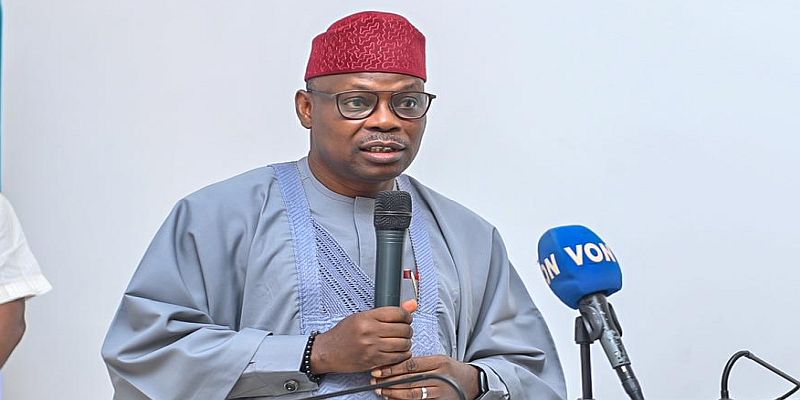Transformation to sustainable Crops, Livestock, and Aquaculture Food Systems in Nigeria

This GEF-8 Food System Integrated Programme led by the Food and Agriculture Organization (FAO) and the International Fund for Agricultural Development (IFAD) is focused on transforming global food systems from farm to table, so that they are sustainable, regenerative, nature-positive, resilient, inclusive, and pollution-free. This aligns with the 2022-2027 National Agricultural Technology and Innovation Policy (NATIP), which describes the government efforts to diversify Nigeria’s economy through agricultural development, and ensure food security in agriculture including livestock and fishery.
The urgency for developing self-reliance mechanisms for in country-level integration to secure food amidst crises like the natural resource degradation, climate change, and other environmental challenges cannot be overstated.
Food production is dependent on Nature and without which the SDG 2, zero hunger by 2030 which is linked to many other SDGs cannot be achieved. Conversely, the production of food through agricultural practices is a threat to nature accounting for 90% of global deforestation, 50% of fresh water biodiversity loss, 70% of global fresh water withdrawals and 33% of global anthropogenic greenhouse gas emissions.
In order to balance these demands and meet the needs of present and future generations, sustainable food and agriculture that ensures profitability, environmental health and equity is an imperative. Unsustainable food systems will continue to result in reduced production of nutritious food, eventually leading to malnutrition, diseases, food insecurity, and migration. Therefore, the transition towards more efficient and comprehensive food systems in Nigeria is critical to ensure the provision of healthy and safe food in the light of escalating population growth, water scarcity, and climate change. Addressing food availability, accessibility, stability, and utilization challenges through the sustainability lens will also offer smallholder producers and rural communities the opportunities to increase income, employment, and food production.
I must emphasize that innovation and digitilization in agriculture remain underutilized, yet their broad adoption can significantly drive the sustainable development of food systems. In light of these realities, we eagerly anticipate this inception workshop’s role in addressing the critical issues that our food and agricultural systems face, guided by the global, regional, and national frameworks, programs, and priorities of the FAO and the Government of Nigeria.
In Nigeria, in line with the priority of President Bola Ahmed Tinubu GCFR and a key deliverable of the Federal Ministry of Environment to boost agriculture and achieve food security, the Federal Ministry of Environment is committed to support the comprehensive transformation of agriculture through climate smart agricultural practices, biosafety regulation, water harvesting, flood control, land degradation neutrality and so on. Our reslove is to ensure that the economic, social and environmental bases to generate food security and nutrition for today and the future are not compromised and growth is ensured in a milieu of environmental benefits.
As our country grabbles with the challenges of insecurity, high cost of transportation and economic downturn, they are exacerbated by climatic factors, which reduce yields and fuel competition between farmers and herders for land and resources thus perpetuating insecurity, loss of livelihoods and poverty. To comprehensively address these challenges, we must craft flexible and innovative strategies to enhance our resilience through the optimal use of our natural and human resources, the adoption of modern agricultural technologies, and the implementation of measures to mitigate these pressures. We must tackle frontally the extensive amount of food waste as a resource management issue and a moral imperative to fight hunger, foster environmental sustainability, and aid in securing food security. Astonishingly, 28% of the world’s cultivable land is used to grow food that, rather than nourishing the hungry, ends up wasted. Therefore, managing losses and waste wisely is not only crucial to reducing the hunger experienced by millions suffering from food scarcity but also for the health of our environment.
The Federal Ministry of Environment will continue work with other stakeholders to promote habitat resilience, agroecological practices, crop diversification, healthy, sustainable diet and food loss and waste reduction in order to secure a sustainable food and agricultural system for our country. We will continue to incorporate and implement food related policies in our NDCs. I call on the FAO and our development partners to invest in ideas and technologies to innovate our food systems, enhance sustainability and improve the quality cum quantity of our food production. Nigerians too must take action by optimising agricultural land use, adopt innovative practices, improve efficiency, reduce waste and shift to more sustainable diets.
Let me express my heartfelt gratitude to the FAO for taking the lead on this and also to our partners who will be playing a critical role in this process. Our collective decision and action remains the panacea to forge a positive path for the future of agriculture, ensuring food security, environmental sustainability, and economic prosperity for all of us. By working together multi-sectorally, across government and across society we can achieve sustainable food and agriculture, ensuring food availability, accessibility, utilization and stability for all today and in the future.
Thank you and God bless the Federal Republic of Nigeria.
By Dr. Iziaq Adekunle Salako
Honourable Minister of State for Environment, Nigeria
